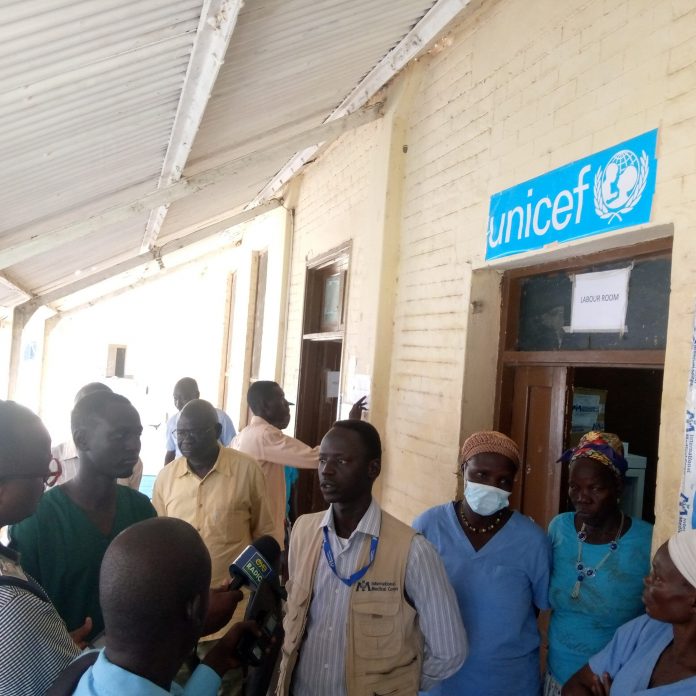Ginaba Lino
Some Medical officers in Upper Nile State of Malakal town are calling on UNICEF not end the World Bank project across the town because it’s beneficial to the community, Catholic Radio Network Reported.
Speaking to the Media, Anyang Ayuen Jok the clinical officer in charge of Asosha primary health care center or (PHCC) stressed that, if the UNICEF stops the World Bank project, there will challenges like inadequate drugs more specially workers’ incentives
“If UNICEF stops the World Bank project there will be a lot of challenges and the first thing will be lack of drugs because with their presence the community are getting medicines special children and Mothers, another thing is our incentive although sometimes it delay if they stop the workers will not work that is why I’m seeing if they stops the medicine will not be available and also the workers will not work this will led to the closer of the health care centers.”
He appeals to International Medical Corps who are partnering with UNICEF through
World Bank to increase their salaries, citing that, they are going now for about 4 years with the some contract they signed with no increment of the incentive.
“On the side of incentive it’s now going almost 4 years there is no increment of the salary therefore they should look into our issue because somebody can’t work for such years without increasing the salary. To add on that before the population was not like the way it is now and the staff are not enough so the should employ more staffs so that the services can go on well.”
Jok says, the government should stand with UNICEF to continue with the World Bank project in Malakal because the project is so helpful.
Aker Mijak a midwife in Asosha PHCC added that, ever since the PHCC was opened, mothers who get their services from the facility became happy because of fair service delivery in Asosha PHCC.
“Since IMC opened this place, the Mothers who are near here are very happy because they don’t move to the teaching hospital due to the distance of the teaching hospital, even at night they come here if anyone has an emergency that is the good thing IMC in partners with UNICEF have done to the community of this place and they are very happy for that.”
Mijak urged other partners to join hands with UNICEF to support the venerable people in South Sudan and in Upper Nile in particular.
She adds that UNICEF should not end the World Bank project because Malakal still need more assistance specially health sector
Meanwhile Mayan Miyem one of the Mothers who delivered in Asosha PHCC extended her gratitude to International Medical Corps (IMC) and UNICEF for the good and free services which they are providing to the community of Malakal.
In 2019, UNICEF and the World Bank started their partnership with the aim of increasing access to essential health services in the areas hit by conflict and some of the worst health indicators in the country.
The Provision of Essential Health Services Project is providing health care services including essential medicines in Upper Nile State, Jonglei State and the Greater Pibor Administrative Area.

